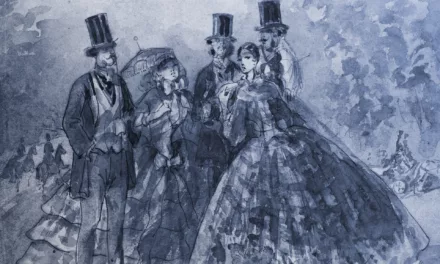
How do I strengthen my writing?

“How do I strengthen my writing? I tend to fall back on bad habits because I can’t find good habits to replace them.“
It’s a tale as old as cuneiform: you have an amazing idea for a story, but when you look at your inky splotches on the page (or a wall of digital text), it’s not quite like you imagined it would be. Maybe it sounds stilted, or forced, or it lacks the depth and complexity you saw in your head.
Sound familiar? We’ve all been there. Fortunately, there are ways to improve your writing so that this happens less and less often. Eventually, you’ll be able to spin feelings and images that make your readers forget everything but the story they’re reading.
How to strengthen your writing
Here are ten (count em!) tips to make your writing the very best it can be.
1. Clear out your creative faucets
Many people who don’t write as well as they’d like become so resistant to the feeling of dissatisfaction that they don’t write at all. This means they never get any better! What happens when you take a significant break from writing is your creative pathways get backed up, just like rusty old taps that haven’t been used in forever and a day. What emerges isn’t going to be particularly palatable, but it needs to come out in order to access the clear, healthy water behind it.
This means writing clunky, cringe-worthy prose as long as it takes to clear out your mental blocks and get your ideas flowing smoothly.
2. Read voraciously
You’ll hear this a lot, because it’s so essential. In the immortal words of Stephen King: “If you don’t have time to read, you don’t have time to write.”
Read widely in the genre you’re trying to write in, as well as other genres that you can learn from. Look at the way authors have structured their sentences and their stories, how they make you love or despise certain characters. Prose writing is just like learning a language; the best way to absorb it is through immersion.
3. Read some bad writing, too
I know, I know, but hear me out. Have you ever read a novel or short story that made your eyes ache from cringing so hard? Maybe it was because their sentences were awkwardly put together, or maybe the plot felt unbelievable or forced. Breaking down exactly why these pieces don’t work for us can be super helpful for understanding what to avoid in our own work.
For example, maybe you read a romantic relationship and feel like it’s unconvincing because the author didn’t take enough time to develop the characters’ connection. Once you’re able to pinpoint that flawed element, you can give it the attention it deserves in your own work in progress.

4. Try on different writing styles
Not all great writers are great in the same way. Some like long, explorative sentences pulsing with sensory imagery (see: Angela Carter), while others prefer concise, austere sentences that get straight to the point (see: Ernest Hemingway). You might gravitate to one or the other of these extremes, or fall somewhere along the spectrum in between.
Try out different approaches to storytelling to find the voice that feels most like yours.
5. Explore characterisation
Breaking: people are messy. Accurately and compellingly conveying this innate messiness is essential to creating a powerful story.
As a warmup exercise, practice sketching out characters that you could incorporate into your stories. You can do this by looking at public domain photographs, or sitting in a public place and dreaming about who passersby might be. Consider where they’ve come from, what they might be going, and what they’re hoping to find or accomplish along the way. Explore body language, voice, and social cues that might tip off their intentions (but be wary of stereotypes and clichés!).
6. Make friends with your thesaurus
A great way to make a piece of prose shine even brighter is to expand your vocabulary. There are a lot of words in the English language that mean similar things, but have slightly different moods and tones. Finding the exact right word to convey what you’re trying to say will help your writing land more emphatically with your reader.
For instance, if you want to describe a moment that feels a little chaotic, you could call it scattered, unsteady, distorted, unbalanced, cacophonous, pandemonious, discordant, anarchic, fractured, tumultuous, and so forth. Or you could just call it chaotic. Each of these words has a slightly different connotation and lends a different feeling to the sentence it carries.
7. Banish filtering words
Filtering is one of the most common mistakes new writers make. It involves describing a character’s sensations or feelings with filtering words like felt, saw, heard, knew, watched, or realised. This holds the reader at a distance and makes them feel like they’re hearing a story, rather than living it.
An example of filtering would be, “She watched the sun rise majestically over the mountains”. It would feel more immediate to simply say, “The sun rose majestically over the mountains”. The reader already knows your point-of-view character is watching; now, the reader can watch it with them.
8. Glare disapprovingly at the passive voice
Passive voice isn’t necessarily wrong all the time, but nine times out of ten, it will slow down the pace of your story and encourage the reader to lose interest in your characters. Passive voice means having something done to a character — “John was punched in the face by Nick” — instead of a character actively doing something: “Nick punched John in the face”.
You can adjust this in your editing process by doing a search for the word “was”. You won’t need to change every single one, but you’ll find it helpful to ask yourself if the sentence is serving the story in the best possible way.
9. Familiarise yourself with story structure
The best stories follow an established plot structure, and follow it so smoothly that the reader doesn’t even realise there’s an ancient storytelling template behind it. Before you write — especially if you’re attempting a longer-form piece like a novella or a novel — it’s helpful to look over plot structures like the three-act structure, the five-act structure, or Freytag’s pyramid.
These structures are designed to introduce just the right amount of tension and suspense, and to give the reader the ideal payoff by the end. These predetermined patterns won’t make your work feel formulaic; instead, they’ll resonate with your reader’s inherent storytelling instincts.
10. Get peer feedback
Finally, the best way to make your work as strong as it can be is to get some feedback from other writers. This can be from a professional editor, a beta reader, or a collaborative writing group.
When we’ve been spending a lot of time on a big writing project, we can go a bit cross-eyed and lose the ability to see things clearly. Getting a second pair of eyes can help you catch plot holes or inconsistencies before you send your story out into the world.
Great writing abilities aren’t something we’re born with; we earn them through hard work and lots of practice! You can use these tips to take your writing from explorative to sensational.





























